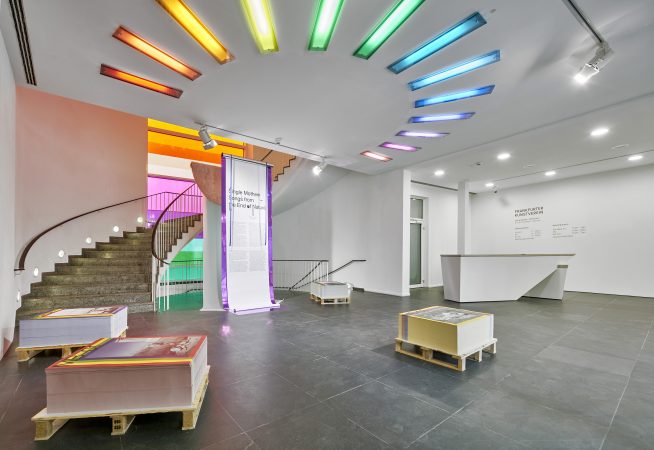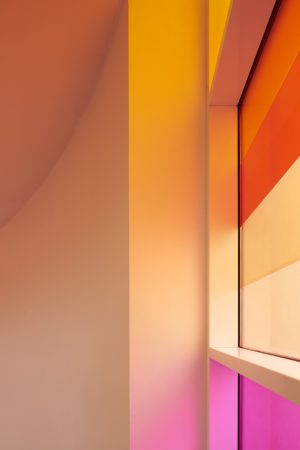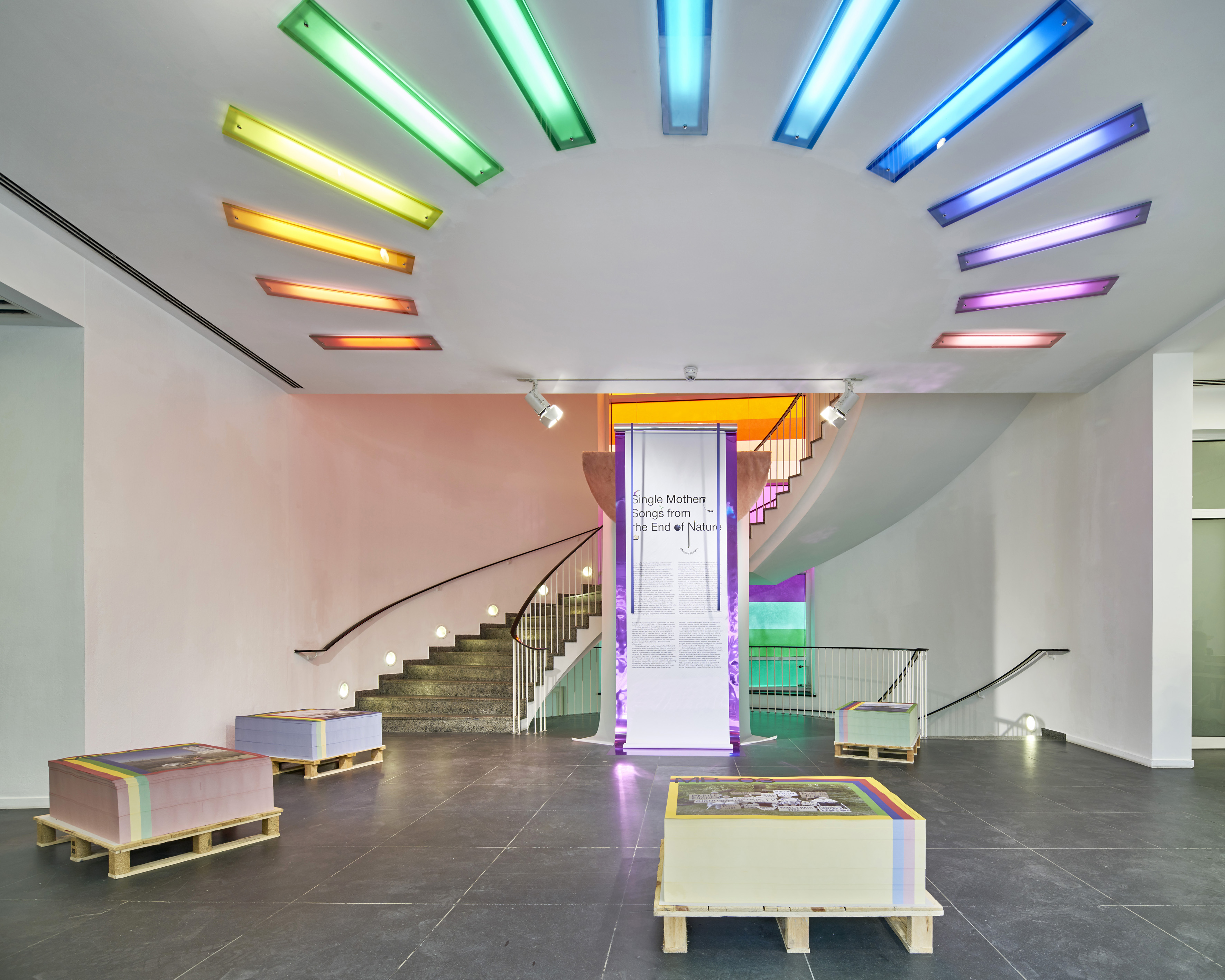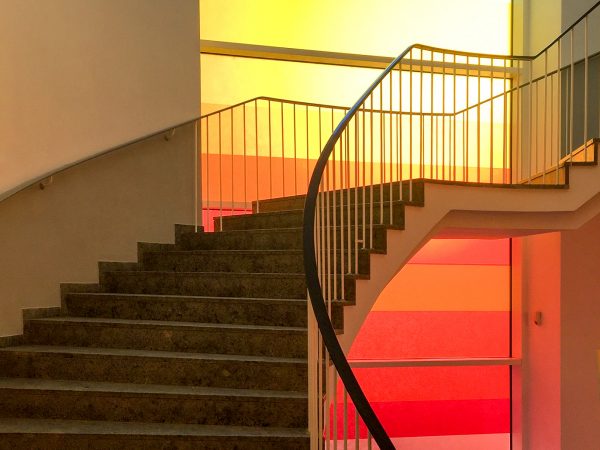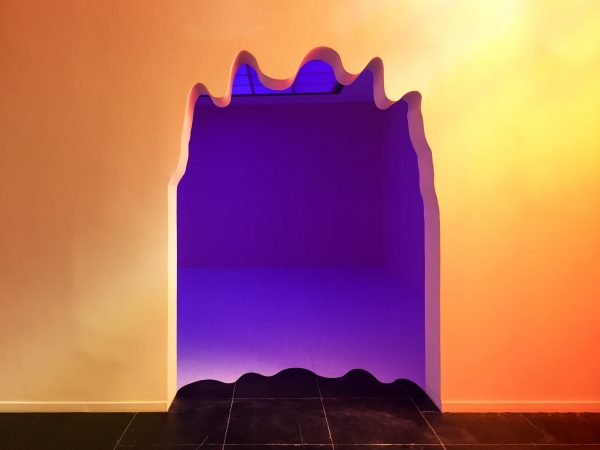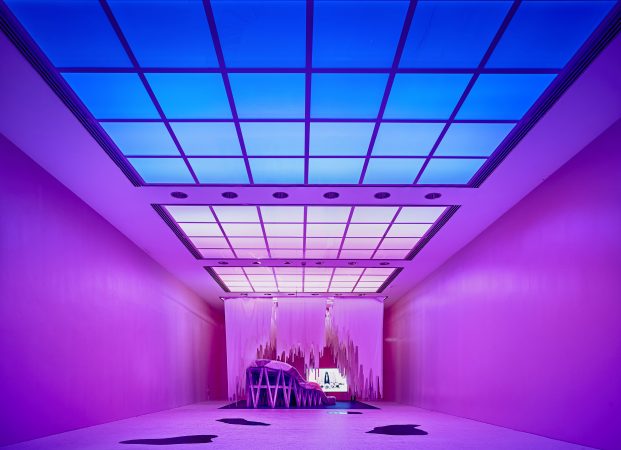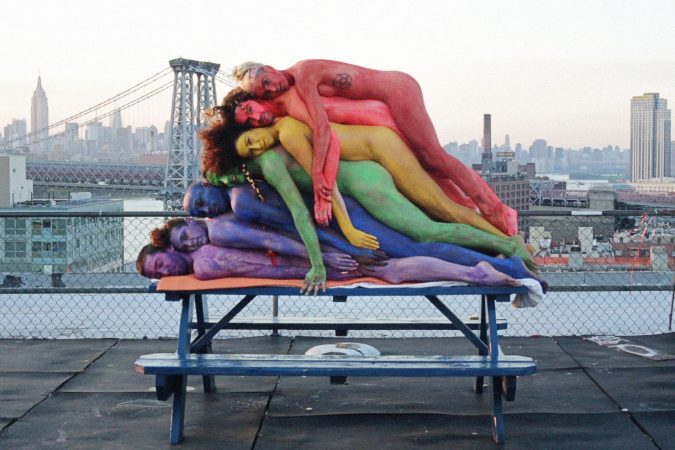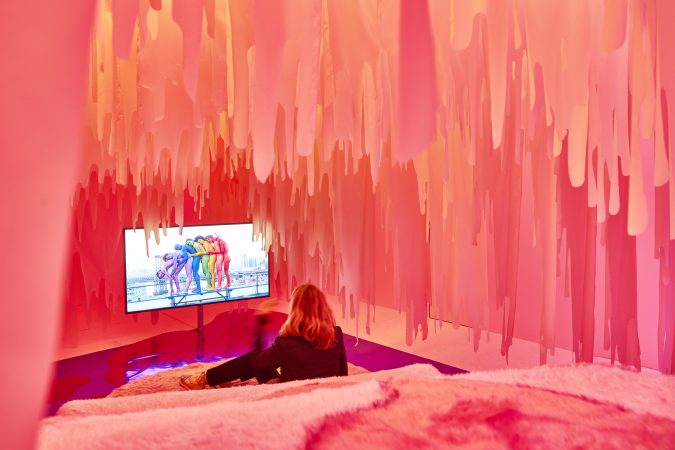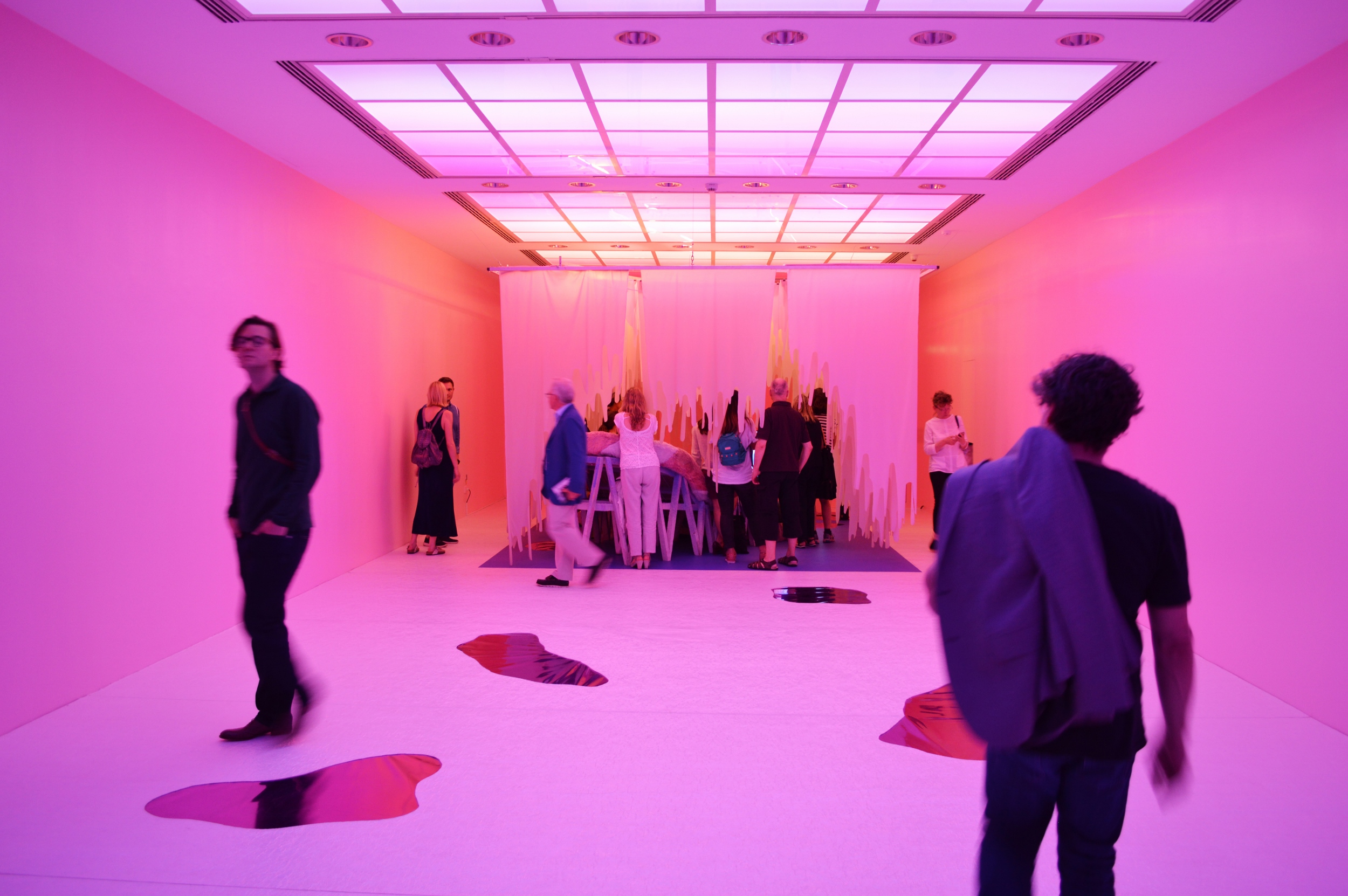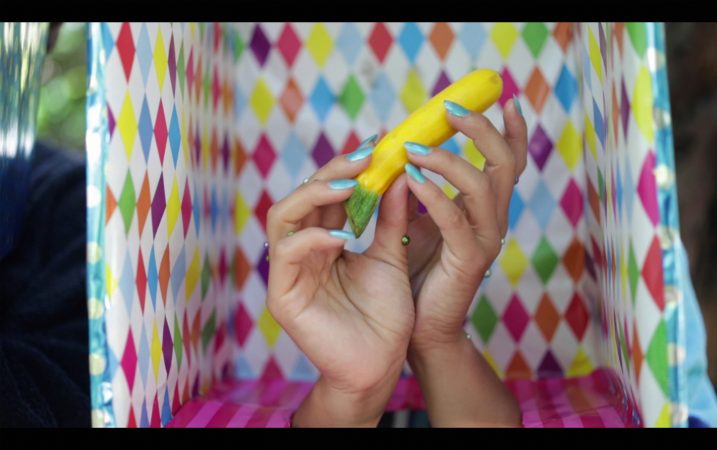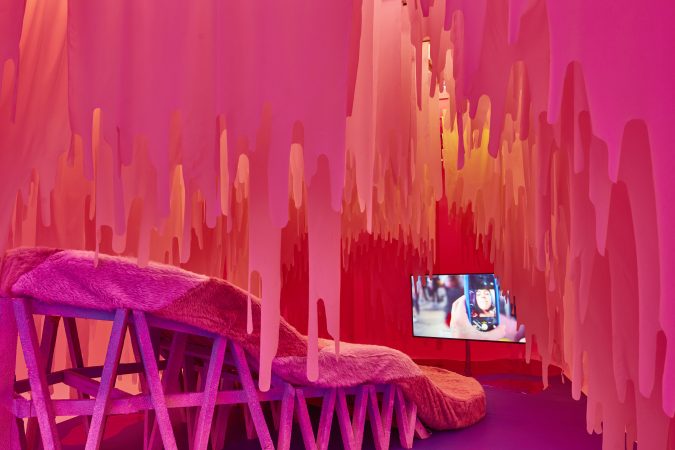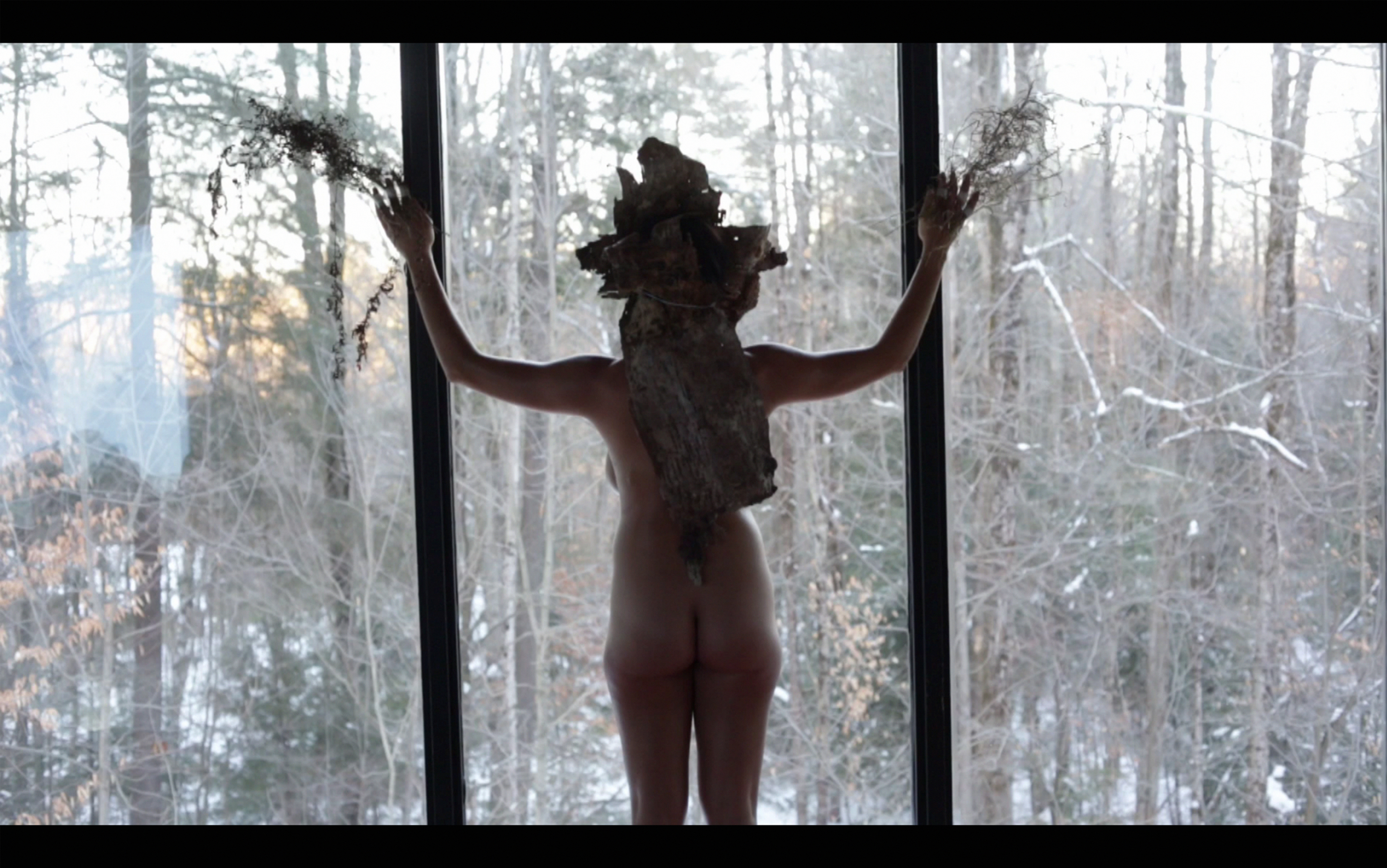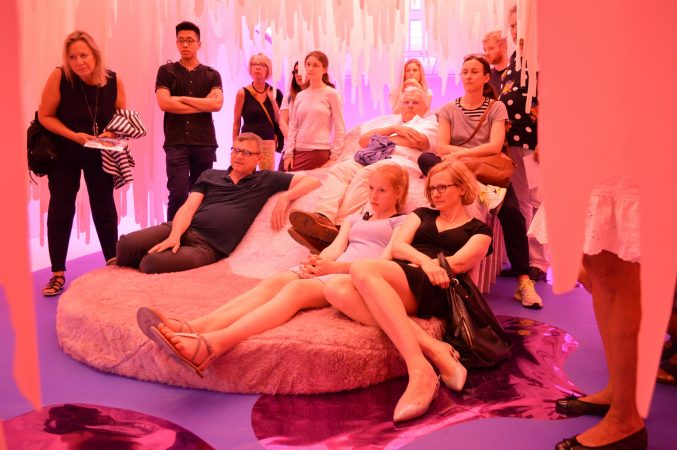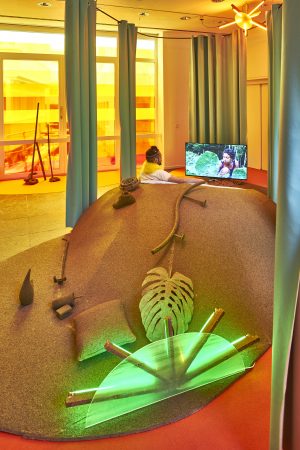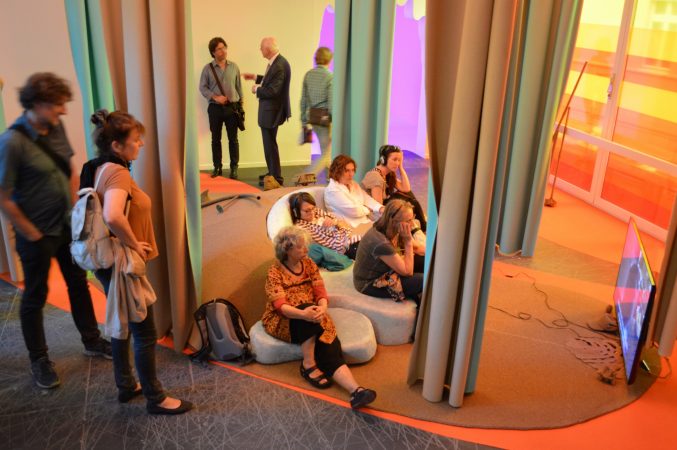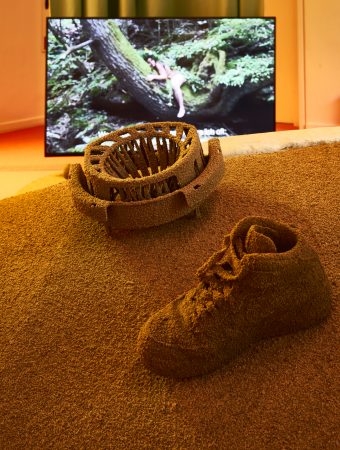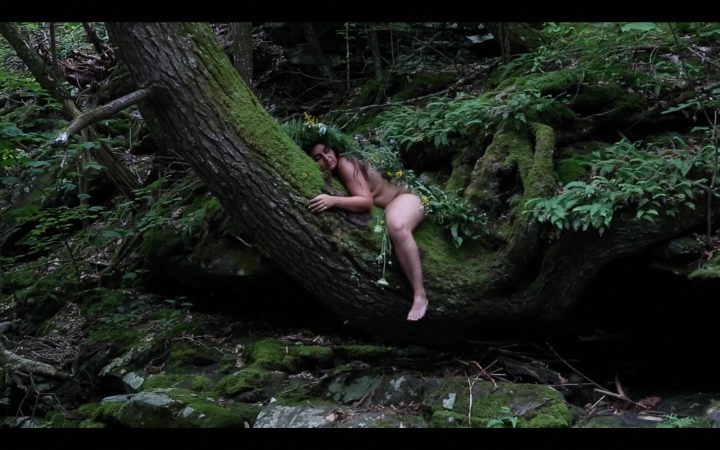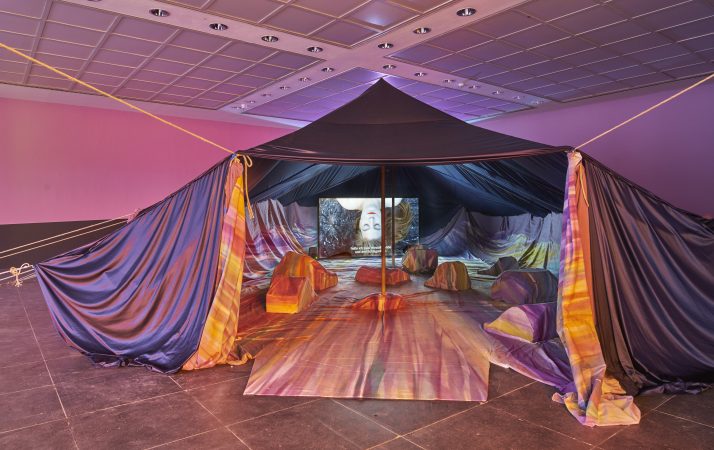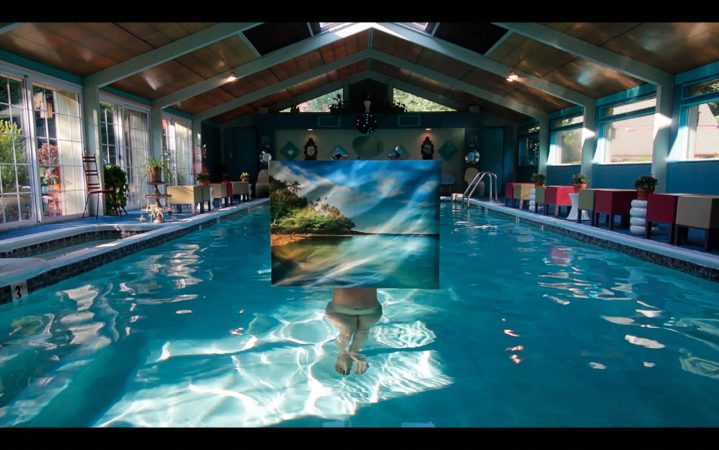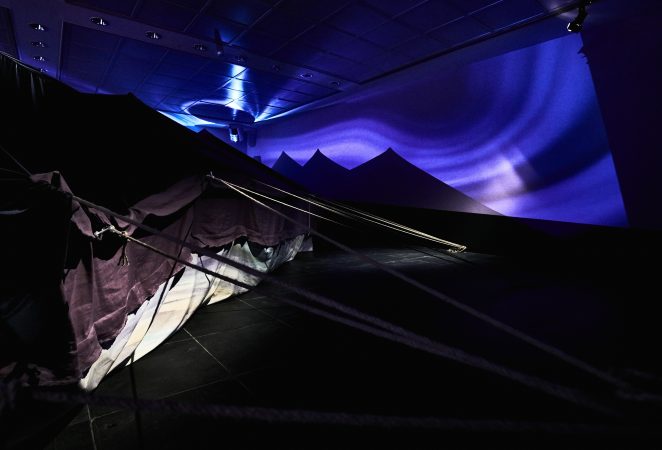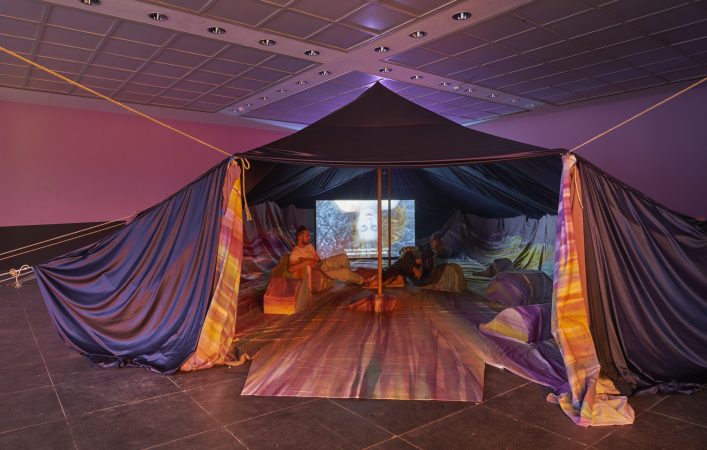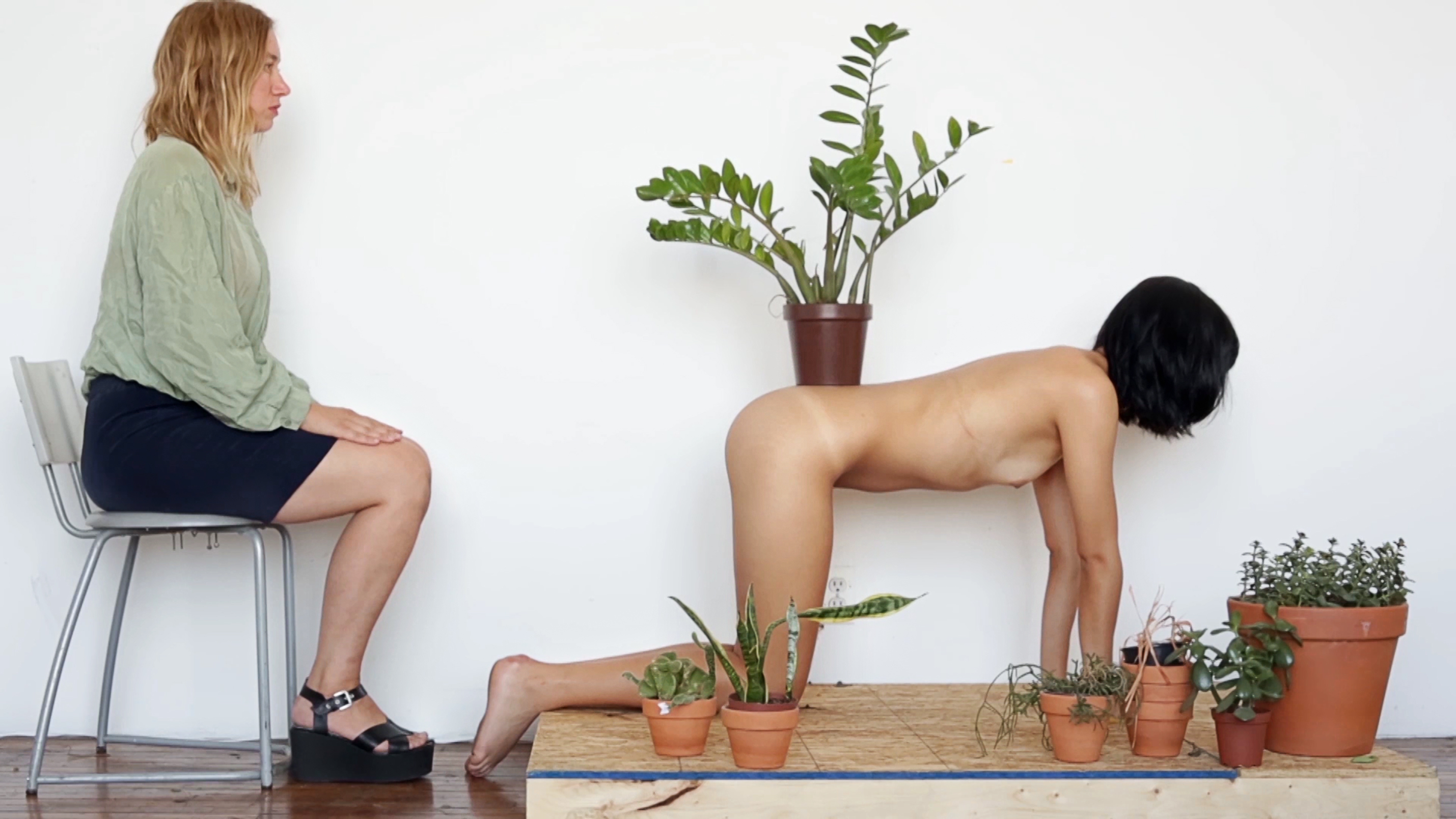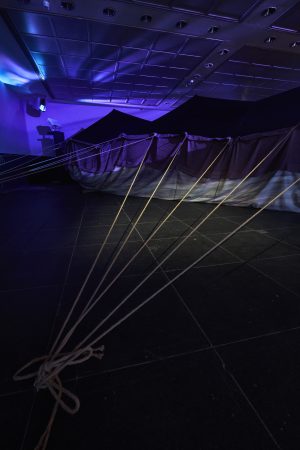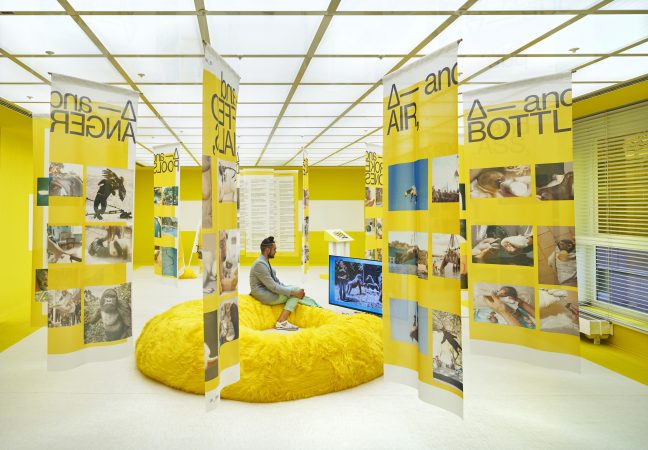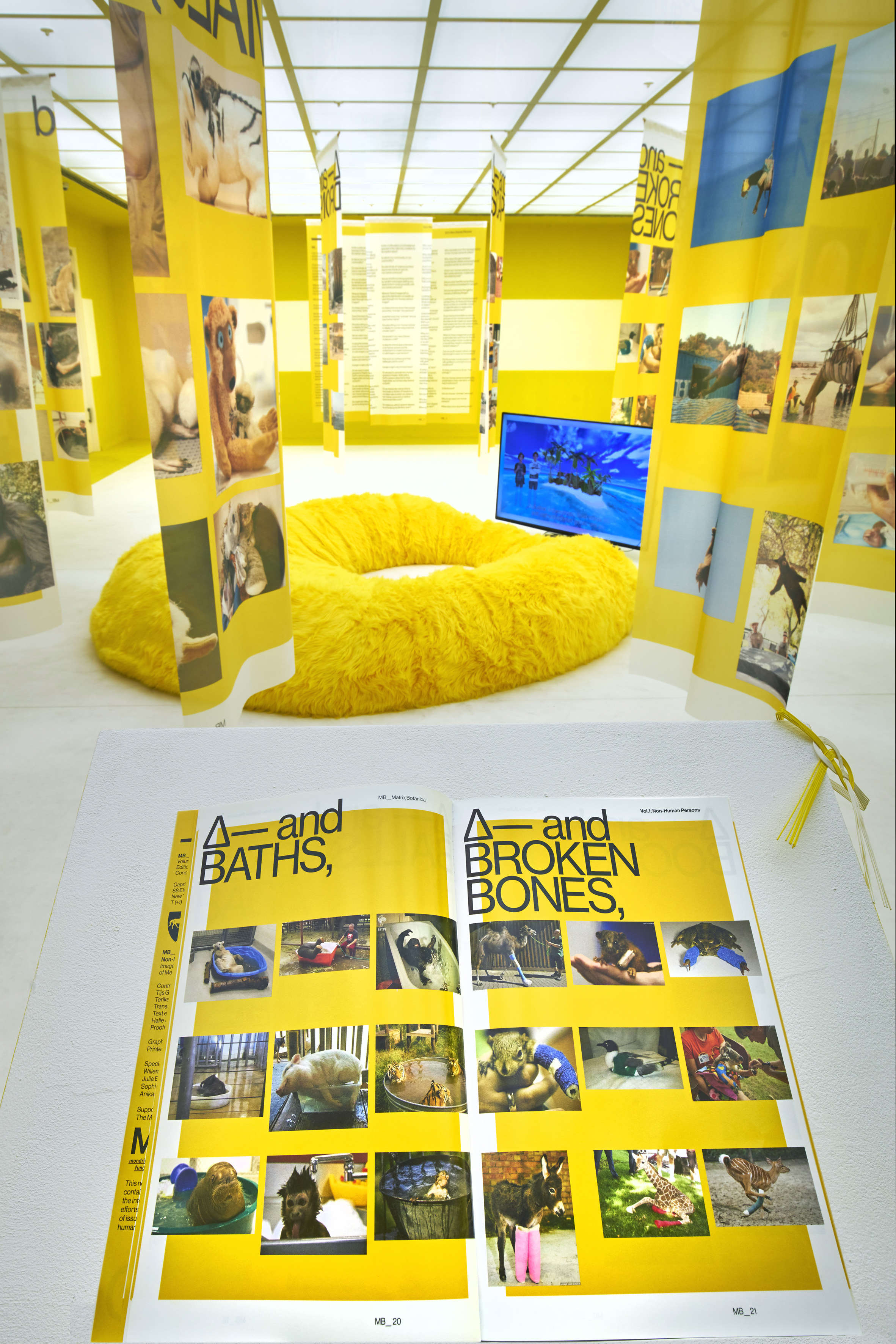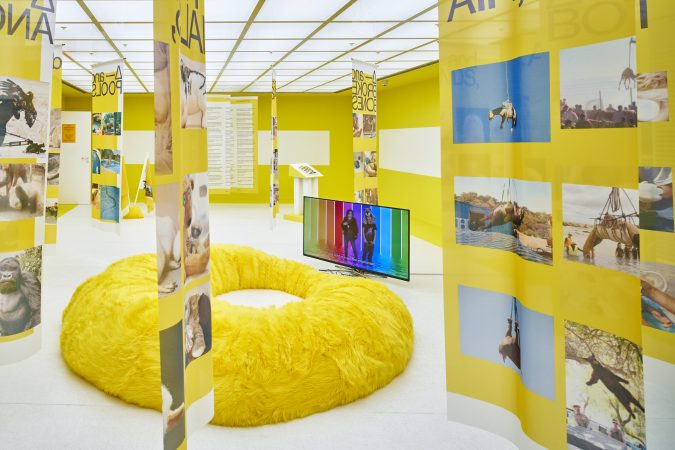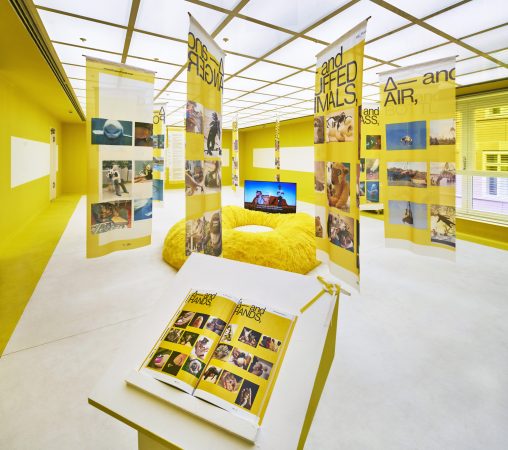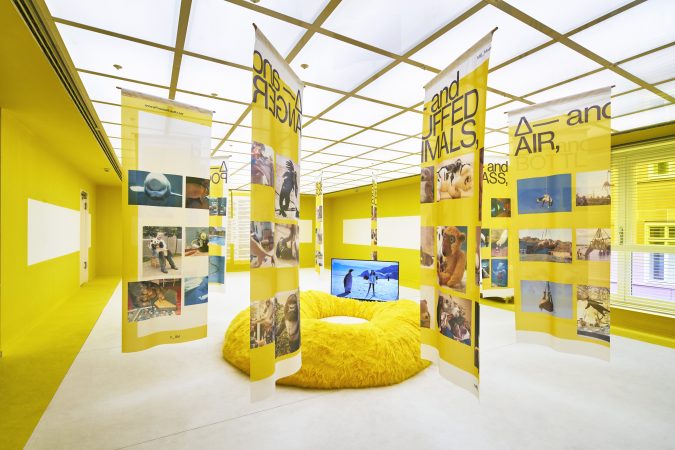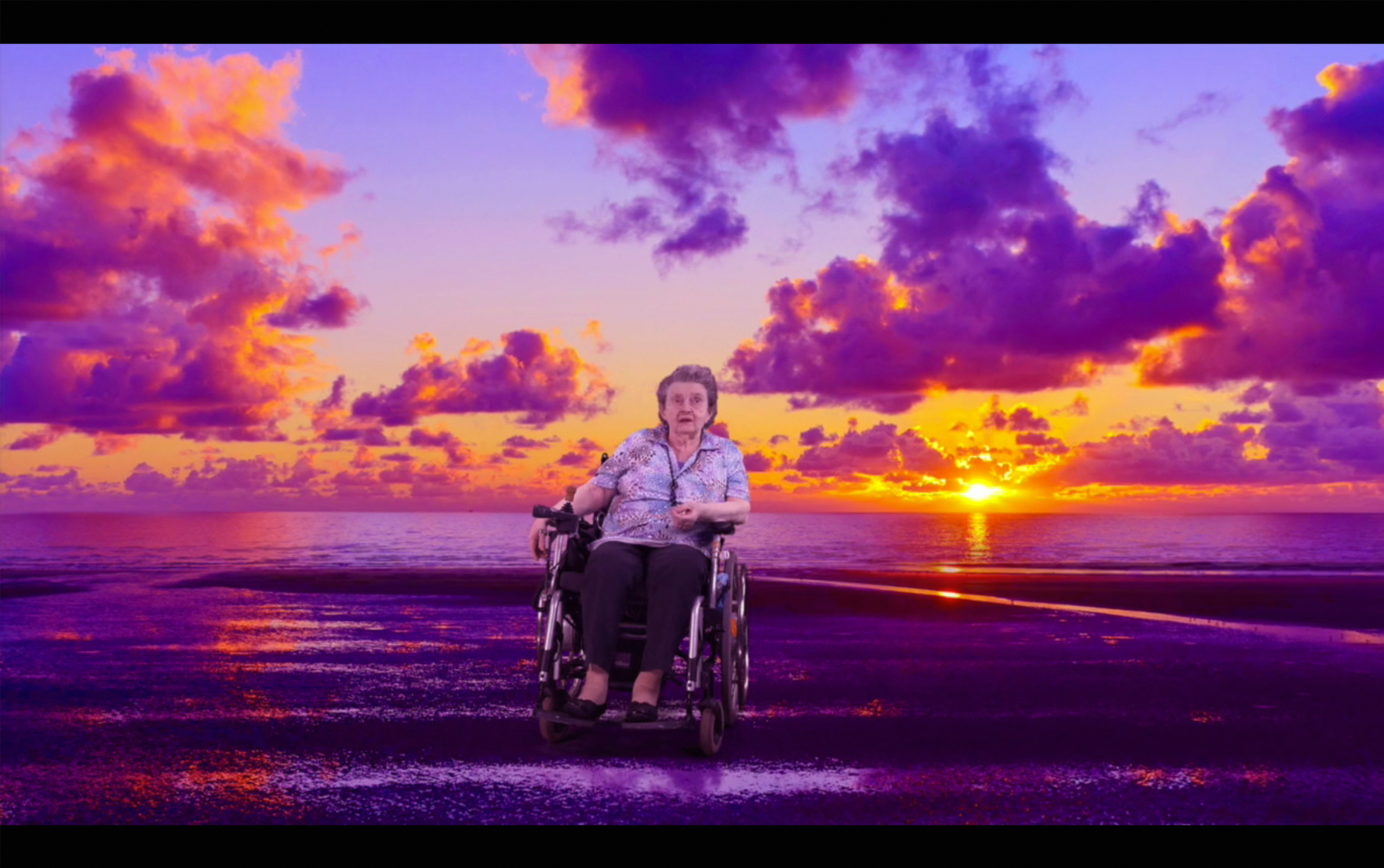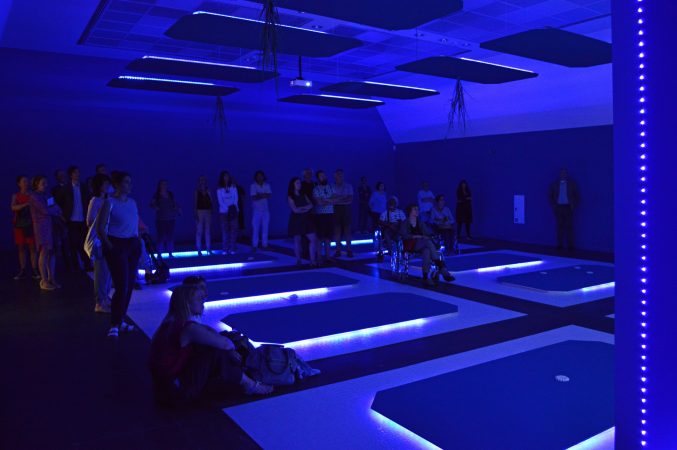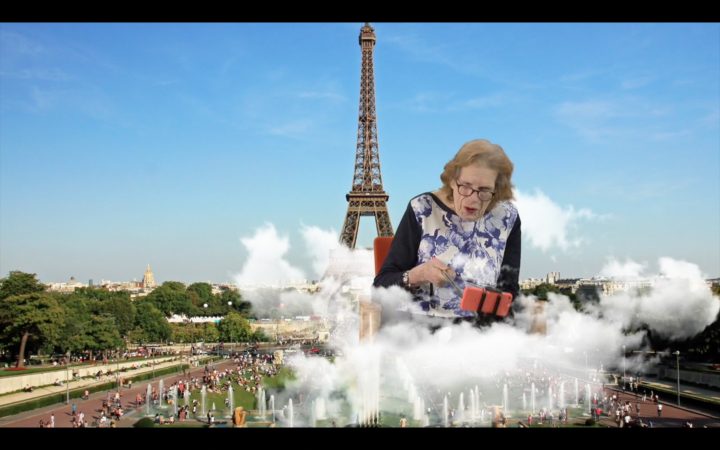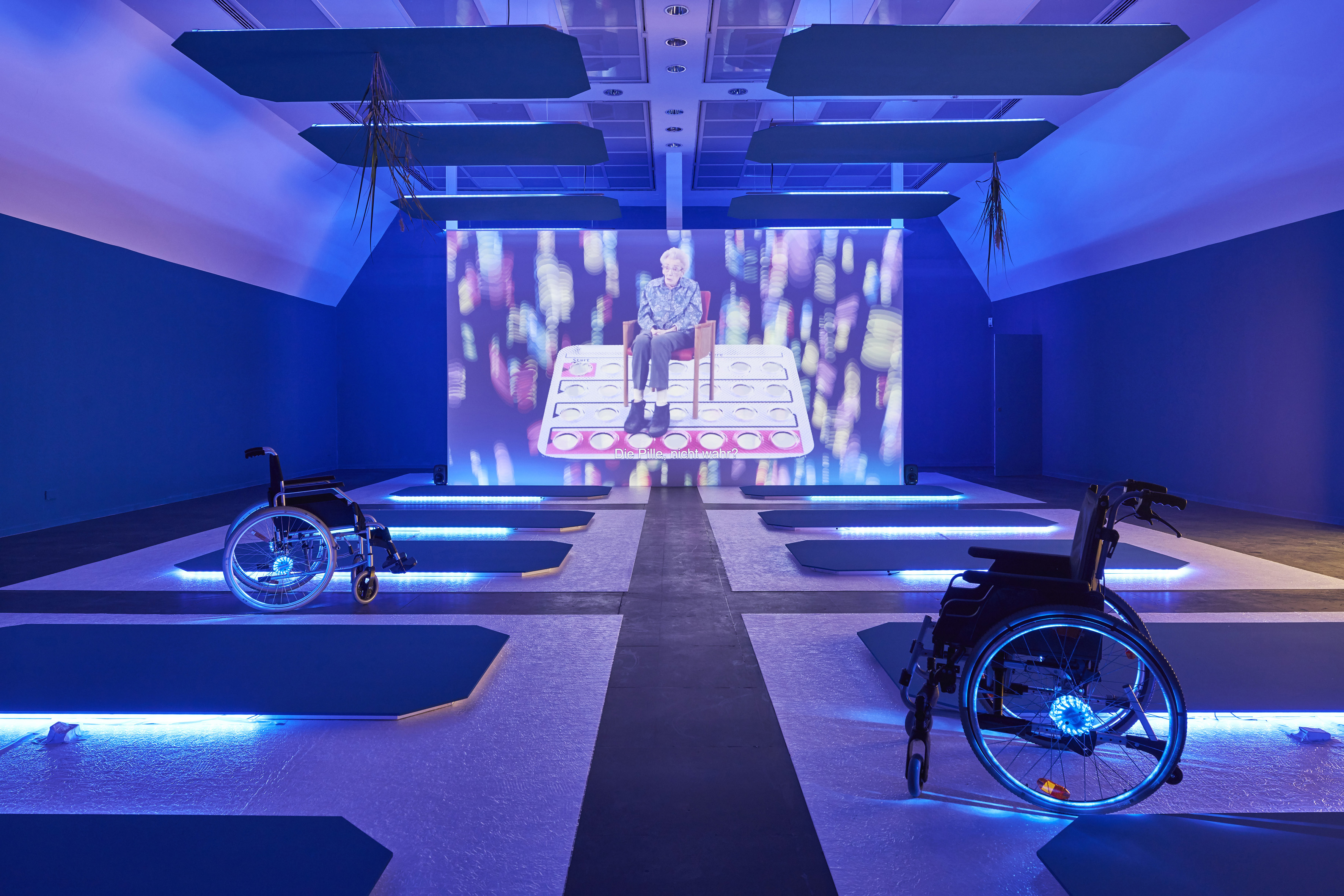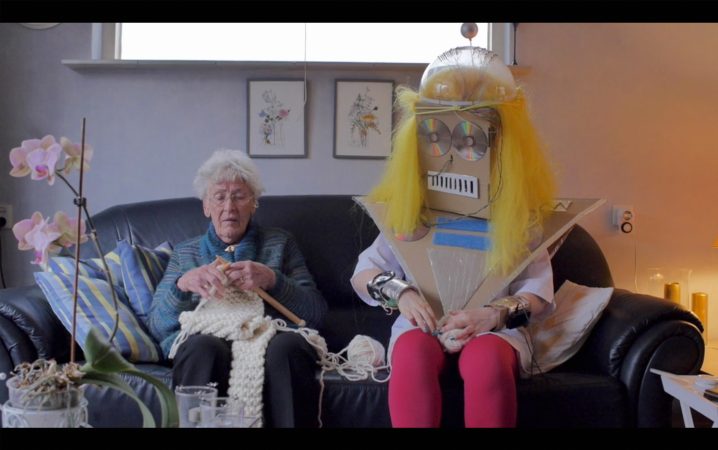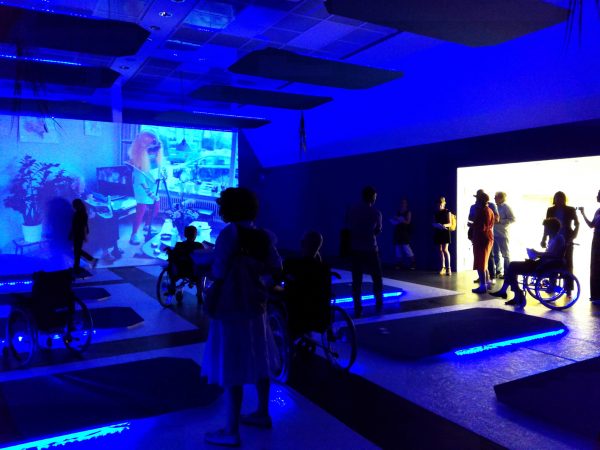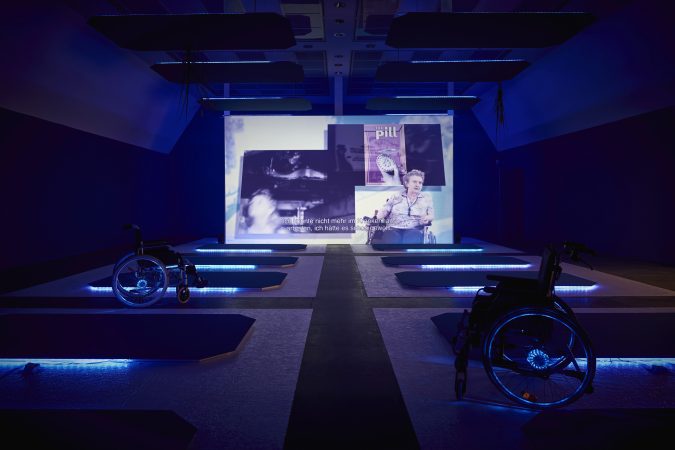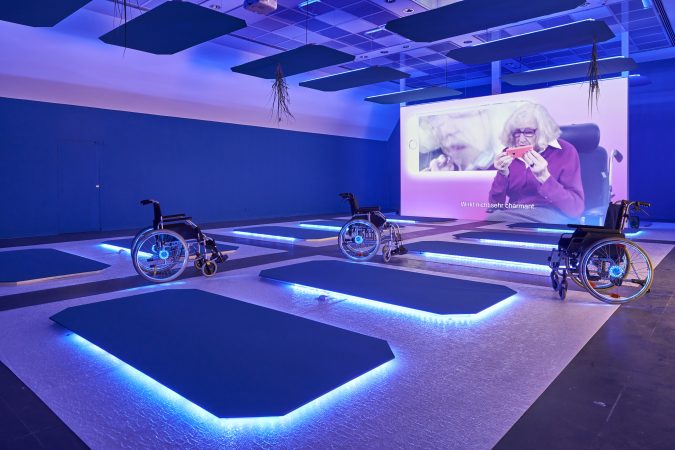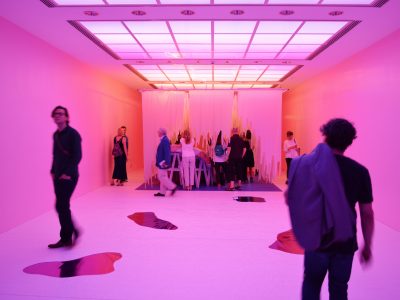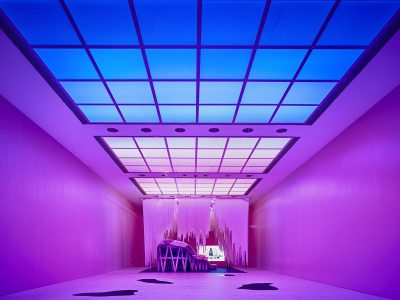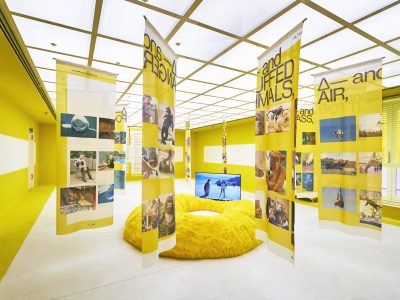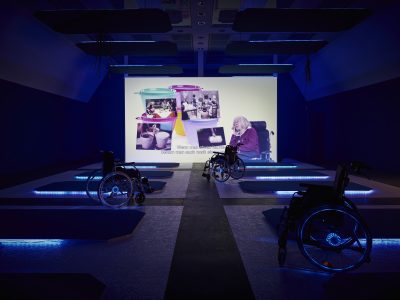Melanie Bonajo: Single Mother Songs from the End of Nature
01.06.2017 — 27.08.2017
Frankfurter Kunstverein presents the first great institutional solo exhibition of Dutch artist Melanie Bonajo in Germany. The artist is shortlisted for the Dutch Prix de Rome 2017, the most generous prize for Visual Arts in the Netherlands.
Melanie Bonajo’s artistic practice is shaped by her critical stance towards the state of our world. Her works are created in the light of an explicitly critical attitude towards capitalism and an ambivalent view of the modern euphoria about progress. In her works the artist seeks to find alternative worldviews and ways of peaceful resistance within a world shaken by crises. With an political and activist approach, Bonajo focuses on urgent and persistent social issues of our time, like the dualism of human and nature, rapidly fading resources and the ramifications of climate change. Her videos, performances, photographs and installations constitute the result of longstanding processes. By means of close observation, collecting and categorising, she investigates the existential questions of humanity. Her reflection leads to powerful aesthetic works, which enable the viewer to explore and experience the issues of our times in sensual sceneries.
Melanie Bonajo’s (b. 1978) work is created against the background of an historic moment, in which the separation of human beings and nature is experiencing a striking intensification. The dualism of man and nature originates in the Age of Enlightenment. It was then that the individual liberated itself from its unity with nature and entered the cultural sphere, where it became the creator of world. Ever since, the separation of culture and nature, the domination of environment and the pursuit of continuous progress constitute the foundation of the modern worldview. Current debates revolve around the urgency of a cultural shift: in the fields of ethics, science and human self image, there seems to become evident a reconsideration, which might lead to a renewed dealing with both our natural environment and our fellow human beings.
The exhibition at Frankfurter Kunstverein presents three of the artist’s distinct works. The experimental, semi-fictional documentary trilogy Night Soil consists of the three autonomous films Fake Paradise (2014), Economy of Love (2015) and Nocturnal Gardening (2016) and was produced by the artists over several years. Based on own experiences, Bonajo documents subcultural communities and alternative societies. The artist searches the entire globe for communities who chose alternative, liberated and sometimes illegal lifestyles to counteract the predominant social systems.
Against the backdrop of a growing sense of alienation, the characters in Bonajo’s films seek to find an alternative existence and new rituals, which might facilitate an altered relationship with nature and community as well as a renewed approach to the body and socially defined gender expectations. Despite being documentaries, the films open up a fictional dimension, which emerges from the protagonist’s imagination and expands into surreal visual worlds.
Bonajo shows people in search of alternative ways of life: anticapitalist community building, a liberated view of sexuality and physicality, alternative methods of food production, sustainable and careful treatment of the natural environment. The mainly female figures stand for a radical ethical difference and an attitude of resistance against the current lifestyle in the age of a globalised, capitalist, digitalised and interconnected world.
The artist lets the female protagonists in the videos have their say and lets them talk about their individual world view. Bonajo offers space for associative self-portrayal by providing costumes and colourful scenes with which the protagonists can translate their attitude to the world into imaginative interpretations.
For the presentation of her works, Bonajo allows the filmic space to protrude into the real space of the exhibition and creates colourful, spatial installations. The artist constructs psychedelic worlds, which invite the visitors to immerse into a contemplative space of experience, thus participating in the formation of short-termed communities.
In her film Progress vs Regress (2016) Melanie Bonajo examines the impact of modern inventions on social relations. She takes as a starting point the perspective of the elderly, who witnessed some of the most extreme industrial, technological and digital revolutions. The film’s protagonists talk about their growing sense of alienation and isolation from a society that is totally embedded in technology and digitalization. Different to the younger generation, the Digital Natives, who become integrated into global economies and social life, these seniors remain on the outside. Bonajo contrasts the protagonists’ narratives with images and symbols of our affluent society and accompanies their accounts with emojis, commercial images and Google-searches. Her technique of digital collaging imitates the aesthetics of amateurish image editing.
The film brings into focus the consequences of modern inventions for the individual and the values of today, but it also investigates how they influence our understanding of work, money, time and emotions. Melanie Bonajo offers humorous but moving insights into the lives of the older generation, who values interpersonal experiences and proximity to both nature and their fellow human beings over technological progress. Bonajo encounters the protagonists of her film without evaluating, but with quiet empathy, and gives each one the chance to have their say.
In collaboration with the artist a new work is produced for the show at Frankfurter Kunstverein, entitled Progress vs Sunsets, the first spatial adaptation of her complex piece Matrix Botanica – Non Human Persons. For more than ten years, Melanie Bonajo has been working on a growing image archive, an atlas of found footage published by anonymous users on the Internet. The vast visual material includes amateur photographs of animals, plants and landscapes, orchestrated and photographed in absurd, unsettling or unnatural ways. The artist collects these digitally found images and adapts scientific approaches to classification, while using unusual categories. The images bear witness to the ambivalent relationship between human and nature. On the one hand, the photograph reveal the destructive behaviour of humankind, which is leading towards severe devastations of our natural environment. On the other hand, nature is being culturally reshaped and romanticised: animals, plants and landscapes are subjected to minimalisation and anthropomorphisation, which defy their intrinsic nature. By conglomerating these images, Bonajo creates a disturbing mirror of today’s estrangement from the traditional concept of nature. Everything genuine is extinguished, the natural violated, the image of our own destruction is shrivelled into digital absurdity.
The exhibition design is realised in cooperation with Théo Demans. The exhibition design for Night Soil is a cooperation of Clemence Seilles and Théo Demans.
The exhibition is curated by Franziska Nori, director of Frankfurter Kunstverein.

